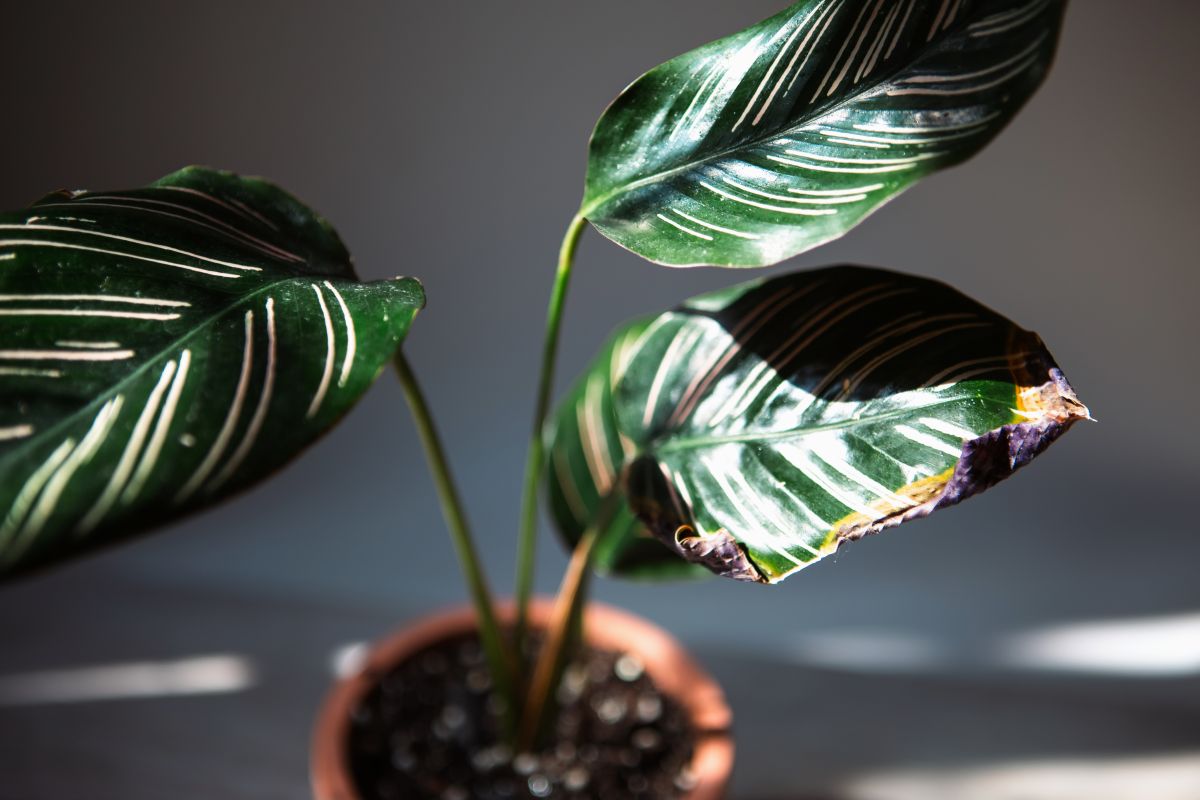Whiteflies are common houseplant pests like spider mites and mealybugs. They are quite easy to spot due to their relatively large size and white bodies. Whiteflies feed on plants with their piercing and sucking mouthparts.
These little white flying bugs can be found in colonies on the underside of the plant leaves. There, they can feed on the sap of young plants.
What Are Whiteflies?

These are tiny white bugs that are known to feed on certain houseplants. They feature white powdery wings. These wings make them a bit immune to certain chemical control products. This is why organic whitefly treatment methods are more recommended.
Asides from houseplants, whiteflies are known to attack vegetables like tomatoes and cucumbers. Small-scale infestations are easy to treat. But large-scale infestations are a lot more severe.
Identifying Whiteflies
Whitefly bugs look more like moths than houseflies. The adults are 1/16 inch long and feature short antennas and smoky white wings. Their nymphs are wingless, they also have flat bodies and tiny scales. They are quite stationary when they get a healthy plant to feed on.
Damages Caused By Whiteflies On Plants
Houseplants affected by whiteflies look weak and almost lifeless. This is because whiteflies feed on the sap of plants, which can also attract diseases. They also secrete honeydew which can leave the plant sticky. This can cause mold on the plant.
Whiteflies also transmit viruses to plants they feed on. Overall, the plant growth gets stunted and its leaves turn yellow.
Life Cycle Of White Fly
Adult female whiteflies produce a lot of eggs. This ranges from 200 to 400 eggs a week(similar to springtails). These eggs could get deposited on the underside of the leaves. 5 to 10 days later, they hatch and turn into nymphs or whitefly larvae.
At this stage, they go in search of suitable feeding spots. When they find a good spot to feed, they flatten their bodies and feed. At the nymph stage, whiteflies go through 2 to 4 instars before becoming young adults. This should take a week, after which they repeat the whole process…
It should take an average of 25 days for a whitefly egg to become a full adult. And adult whitefly can live for a maximum of 2 months.
Preventing Whiteflies
You can prevent a whitefly infestation by doing any of the following.
- Start by doing a routine check on the houseplant for signs of an infestation. This is best recommended before bringing the plant home from a plant shop. Check for obvious symptoms of an infestation like yellowing or honeydew.
- Like mealybugs, Whiteflies are attracted to soils with high nitrogen content. This means avoiding using fertilizers with high amounts of nitrogen.
- Ensure you treat plants you suspect to be infested by whiteflies. This is easier with routine checks done on the houseplant.
Getting Rid Of Whiteflies
If you missed signs of whitefly infestations, you can try the following control tips.
- Whiteflies are attracted to the color yellow. Try using yellow sticky tapes to trap adult whiteflies that perch on plants.
- Because of their relatively large size, a powerful hose can be used to reduce their population. Spray water on affected plant areas to dislodge them.
- Use an organic whitefly pesticide to reduce large infestations. After doing this, you can introduce whitefly predators to the plant. Lacewing larvae and ladybugs are known to feed on whitefly eggs.
- Using neem oil for whiteflies is also recommended. It can be a great whitefly pest control method. They can be sprayed on houseplants as well as fruits and vegetables. But ensure you cover the entire plant with the neem oil.
- Horticultural oils work on all stages of a whitefly life cycle. They can disrupt the life cycle and kill whiteflies by smothering them.
- Some strong-smelling plants act as repellents for whiteflies. Plants like mints, onions, parsley, and cilantro could be placed near an affected plant.
Frequently Asked Questions
Neem oil is an excellent organic insecticide for whiteflies. It is effective when controlling whiteflies.
Whitefly nymphs have small bodies with no legs and are oval in shape.
By mixing liquid soap with water, you can make a good insecticidal soap for whiteflies.
Yes, neem oil can be used in controlling fruit flies.
A houseplant soil with a high level of nitrogen could be attractive to whiteflies.





